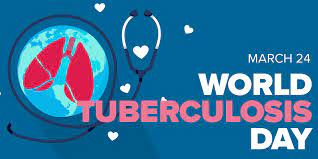Saturated fat may be healthy for you: study
Mon 05 Dec 2016, 11:23:27
Consuming saturated fat in diet may actually be good for you, claims a new study which challenges the long-held belief that dietary fat is unhealthy for most people.
Researchers at the University of Bergen in Norway found strikingly similar health effects of diets based on either lowly processed carbohydrates or fats.In the randomised controlled trial, 38 men with abdominal obesity followed a dietary pattern high in either carbohydrates or fat, of which about half was saturated.
Fat mass in the abdominal region, liver and heart was measured with accurate analyses, along with a number of key risk factors for cardiovascular disease."The very high intake of total and saturated fat did not increase the calculated risk of cardiovascular diseases," said professor Ottar Nygard.
"Participants on the very-high-fat diet also had substantial improvements in several important cardiometabolic risk factors, such as ectopic fat storage, blood pressure, blood lipids (triglycerides), insulin and blood sugar," said Nygard.
Both groups had similar intakes of energy, proteins, polyunsaturated fatty acids, the food types were the same and varied mainly in quantity and intake of added sugar was minimised.
"We here looked at effects of total and saturated fat in the context of a healthy diet rich in fresh, lowly processed and nutritious foods, including high amounts of vegetables and rice instead of
flour-based products," said PhD candidate Vivian Veum.
flour-based products," said PhD candidate Vivian Veum.
"The fat sources were also lowly processed, mainly butter, cream and cold-pressed oils," said Veum.Total energy intake was within the normal range. Even the participants with increased energy intake during the study showed substantial reductions in fat stores and disease risk.
"Our findings indicate that the overriding principle of a healthy diet is not the quantity of fat or carbohydrates, but the quality of the foods we eat," said PhD candidate Johnny Laupsa-Borge.
Saturated fat has been thought to promote cardiovascular diseases by raising the "bad" LDL cholesterol in the blood.However, even with a higher fat intake in the Norwegian diet intervention (FATFUNC) study compared to most comparable studies, the researchers found no significant increase in LDL cholesterol.
Rather, the "good" cholesterol increased only on the very-high-fat diet.
"These results indicate that most healthy people probably tolerate a high intake of saturated fat well, as long as the fat quality is good and total energy intake is not too high. It may even be healthy," said Nygard.
"Future studies should examine which people or patients may need to limit their intake of saturated fat," said assistant professor Simon Nitter Dankel, who co-led the study.
The study was published in The American Journal of Clinical Nutrition.
No Comments For This Post, Be first to write a Comment.
Most viewed from Health
AIMIM News
Latest Urdu News
Most Viewed
May 26, 2020
Do you think Canada-India relations will improve under New PM Mark Carney?
Latest Videos View All
Like Us
Home
About Us
Advertise With Us
All Polls
Epaper Archives
Privacy Policy
Contact Us
Download Etemaad App
© 2025 Etemaad Daily News, All Rights Reserved.






.jpg)

























